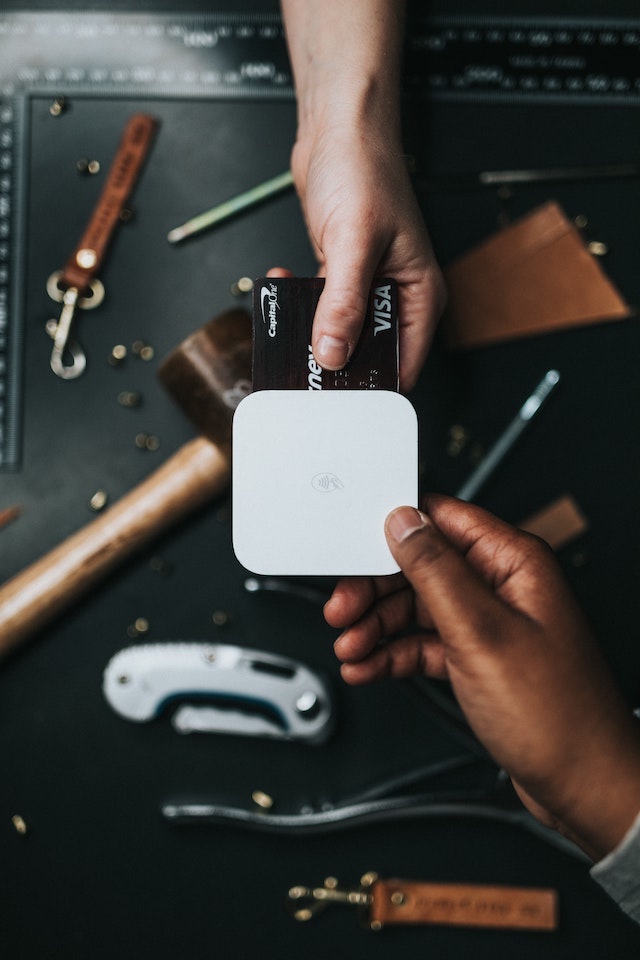Indian business owners are increasingly adopting point of sale machines in their business operations.
A good point of sale (POS) machine can:
- Increase sales
- Enable sales from multiple locations
- Track real-time data about sales performance
- Improve inventory control and more
Before you begin looking for the best point of sale machine for your business, let’s first explore what point of sale actually is.
What is a point of sale machine?
A point of sale machine is an electronic device used to record sales and accept payments. But they also help in other business processes like:
- Inventory management
- Sales analytics
- Tax calculations
The types and features of point of sale machines vary over a wide range.
A restaurant point of sale machine differs from that of grocery shops.
This, in turn, differs from point of sale machines for clothing stores.
Some home delivery businesses also use portable point of sale machines to accept payments and generate receipts.
Can you turn your smartphone into a POS terminal?

Accepting card payments was a major hurdle in turning smartphones into point of sale terminals. But now, several banks and payment companies are coming up with technology that combines software and point of sale (aka Soft POS) into apps for mobile phones.
Axis Bank has partnered with Mastercard and Worldline to launch a point of sale feature for smartphones. Additionally, National Payments Corporation of India (NPCI) has roped in PayCore to design a RuPay point of sale app.
Paytm also launched contactless card payment in their Paytm for Business app. This enables peoplet to make payments just by tapping their cards on the phone. However, you'll need a mobile phone enabled with near-field communication (NFC) for that.
The pros of using mobile point of sale
By using a mobile point of sale, you can reap the following benefits:
- Quick set up: You can download the point of sale app on mobiles from the Play Store and register with your details.
- Easy-to-use: Smartphone point of sale is used on familiar mobiles. So, you can learn the basic usage within minutes.
- Accessible everywhere: These point of sale machines allow you to accept payments, check transactions, and inventory anywhere you want.
- Multiple payment options: Mobile point of sale terminals have wallet options, QR code and UPI mode. They also have card payment in one place.
- Low cost: These point of sale apps can run on most modern Android mobiles. So, you won’t need to pay for some higher-end mobile or another device.
The cons of mobile POS
On the flip side, the following can be some common drawbacks of mobile POS:
- Available only on Android: For now, contactless card payment works only on NFC-enabled Android mobiles. Also, you can accept PIN-less payment for up to ₹5,000 only.
- Insecure and unstable: Mobiles are not as secure as business-oriented point of sale terminals. Moreover, mobile point of sale apps are newly developed and may run into issues from time to time.
- Not so durable: The portability of mobile point of sale exposes them to dangers like thefts and water damages. You might even need to replace them often.
6 tips to pick the best point of sale machine for your business

Here are six important things to consider when looking for the ideal point of sale machine for your business.
1. List down features you need
The use of point of sale machines varies from business to business. Even among similar businesses, the pattern of point of sale usage can differ dramatically.
Most point of sale systems come with:
- Inventory management
- Order management
- Basic reporting functions
You may also want to have additional features added on to handle other tasks like:
- Maintaining customer records
- Running loyalty programs
- Managing employees (this is good if you provide home deliveries or have multiple storefronts)
Apart from all that, your point of sale system should be made to handle online sales if you run an e-commerce website. The first step to finding the right point of sale machine for your business is to create a list of all the features you need.
2. Check integration with third-party applications
Third-party integrations come in handy to help you get the most out of a point of sale machine you’re going to buy.
These integrations are like add-on software to improve point of sale functionality. They can help you connect to your:
- Preferred payment gateways
- E-commerce platforms
- Delivery services and other useful applications
Also, do check if the company offers support for easy integrations with the third-party apps. The more integrations a point of sale offers, the better you can handle your business using it.
3. Analyse reporting options
In-depth reporting is the next thing to check when you’re going to complete the final step of buying a point of sale machine.
Detailed reports can help you:
- Decide product purchases
- Compare sales
- Improve your marketing strategy
A point of sale should be able help you filter reports by:
- Dates
- Categories
- Products
What’s more, an advanced point of sale machine can show sales details for each of your employees. And if you have multiple stores, you can use it to compare sales and transactions for all your locations in one place.
Therefore, it is imperative that you should go for a point of sale that offers multiple reporting options.
4. Check that it’s user-friendly
A user-friendly point of sale machine can save a lot of time and effort.
Whether you’re adding inventory or pulling out sales data, the process should be straightforward. Furthermore, you should be able to see the data as you want without the help of your IT guy.
A point of sale machine should be intuitive not only for you, but also for your staff.
Employees should be able to learn all the functions quickly.
Remember, an easy-to-use point of sale system can also speed up the checkout process during rush hours — thus, driving more sales.
5. Ensure it meets all security and compliance requirements
A point of sale machine stores and processes sensitive data — both from your business and your customers. This is why you must check to see if the machine passes standard payment processes and is compliant with security protocols like the ones listed below.

EMV
The EMV is a payment standard for chip-based cards and refers to the three companies that originated it: Europay, Mastercard, and Visa. Your point of sale must support EMV standards to accept payments from EMV cards.
PCI-DSS
PCI-DSS stands for Payment Card Industry Data Security Standards. It’s an international information security standard that ensures the privacy of card payments.
GST
Apart from security standards, a point of sale machine should also comply with the goods and service tax (GST). This will ensure hassle-free invoicing and tax filing.
6. Look at the setup cost
Point of sale machines have become more affordable over time. Every vendor has different packages, which they will customise to your needs.
If you don’t negotiate to get the right package, you might end up paying for add-on functions you will never use.
Point of sale vendors may charge annually for the features you want, along with a one-time charge for installation and training. Also, you may have to pay for staff training and on-site maintenance charges.
Therefore, it’s important to make a thorough price comparison with the features you need. It’s a surefire way to get the best deal on a point of sale machine.
Take your business to the next level
A point of sale machine plays a critical role in the success of your business. You should get one that fulfills not only your present needs, but also future ones.
A mobile point of sale can be a good option to explore if you are just starting. If you want a more advanced point of sale machine, it will be worth your investment in the long run.
Making a list of features you want in a point of sale, exploring third party-integrations, and analyzing reporting options can help you make the right decision. You should also buy a point of sale that is easy-to-use and meets all the latest security guidelines.






